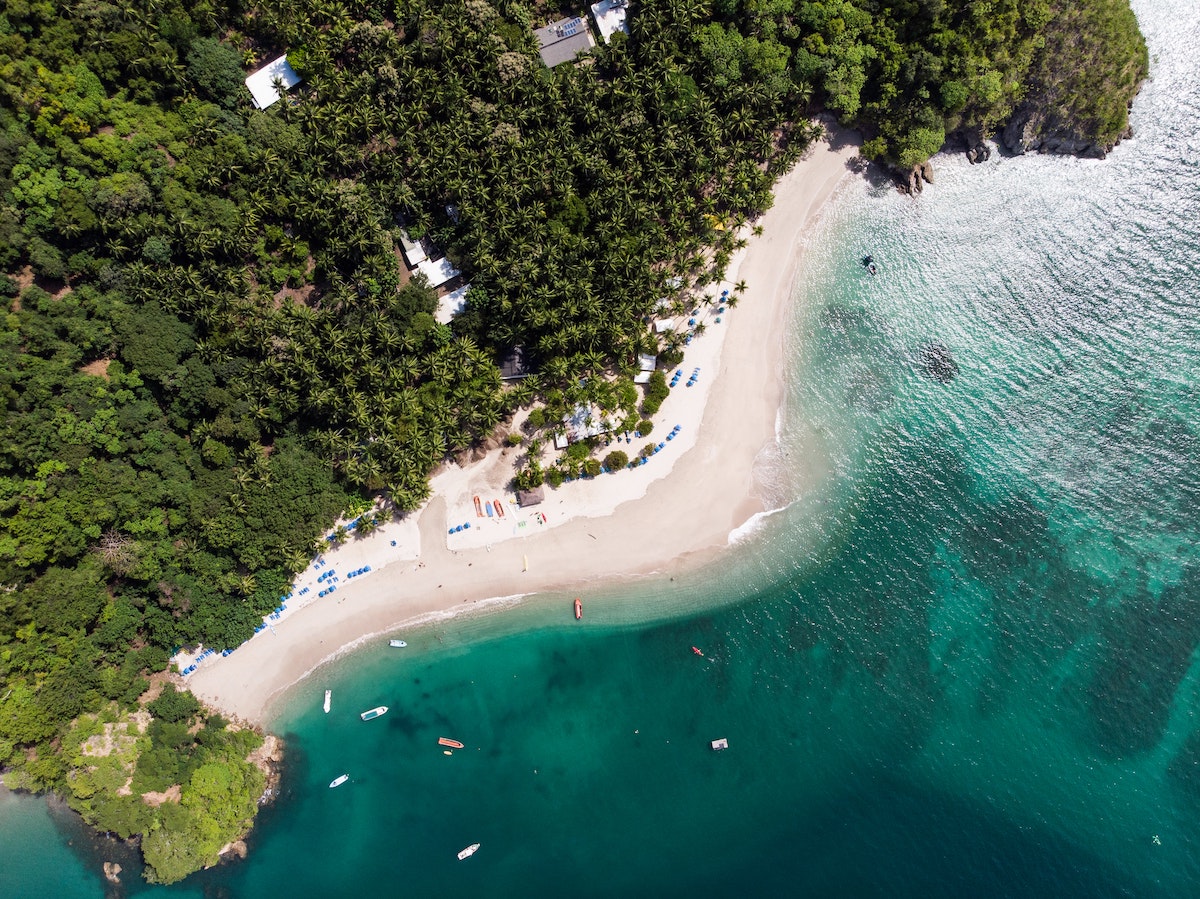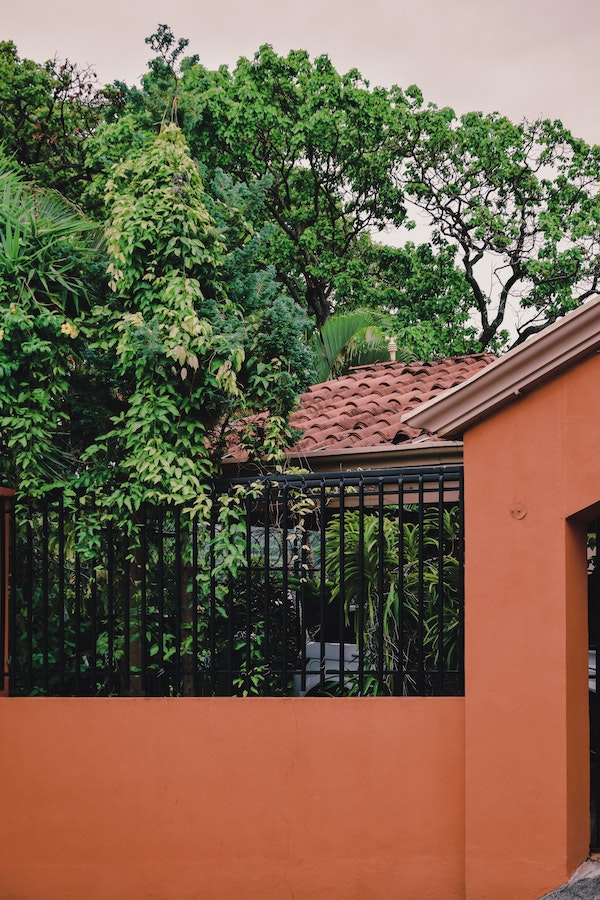By: Nick Callos
Get Ready for Pura Vida in Costa Rica
Costa Rica is a dream destination for digital nomads. With high-quality and affordable healthcare, political stability, great infrastructure, low crime, and plenty of nature, culture, and entertainment, it’s easy to see why so many see moving to Costa Rica and living in Costa Rica as a great idea.
Nearly 500,000 foreigners have some sort of residency status in the country of 5 million. During the COVID-19 pandemic, the Costa Rican government kept the country open to expats through their digital nomad visa. So, if you’re looking for a change, look no further.
This guide covers all you need to know about moving and living in Costa Rica — the place of Pura Vida (the pure life). Topics include:
- Working remotely in Costa Rica
- Semi-retirement and retirement in Costa Rica
- Housing in Costa Rica
Extra tip: If you need to figure out your visa situation, check out our comprehensive guide on residence visas for Costa Rica.
Let’s get to it!
Working Remotely in Costa Rica

Via. Imagine working in such a setting.
Okay, you don’t need convincing that working remotely in Costa Rica would be amazing. So, let’s dive into how you can make working remotely from Costa Rica happen. Listed below are steps to follow.
1. Meet the Requirements for Costa Rica’s Digital Nomad Visa
Costa Rica’s digital nomad visa enables you to work and live in the country for one year, with the option to extend for a second year. To get the visa, you must meet the following special requirements:
- $3,000+ in monthly income for the past year, with ongoing employment for the foreseeable future. If you’re moving to Costa Rica with your family, you need $4,000+ in monthly income.
- Proof of health insurance for yourself, as well as your family if they’re living in Costa Rica with you.
- Pay visa application fees.
For more details, read our full Costa Rica visa guide.
2. Get Your Finances Ready for Working Remotely in Costa Rica
Another reason why so many digital nomads love living in Costa Rica is the advantageous laws. Through the new digital nomad scheme, you enjoy the following benefits:
- Exemption from local income tax (no double taxation if you work for companies and clients elsewhere)
- Free import of necessary equipment for work, like a monitor and computer.
- Permission to open a local bank account (for instance, you could use PayPal to transfer funds to your Costa Rican account)
3. Make Sure You Have Access to Fast Internet
Costa Rica has a solid communications infrastructure, with average to good internet speeds. For working remotely in Costa Rica, you probably need speeds of 50+ Mbps. You can get such speeds in the capital city of San Jose and numerous popular beach towns on the Caribbean or Pacific coasts.
As you look for places to live, check internet speeds, as some spots may not have the speeds you need.
4. Improve Your Spanish Language Skills
Although you can live just fine speaking English, knowing Spanish will make life easier and more enjoyable. It will also make tackling issues associated with remote working, like setting up a home office, easier (as you’ll be able to communicate better with folks helping you).
Semi-Retirement & Retirement in Costa Rica

Via. Surf in the morning; work in the afternoon. That’s what semi-retirement in Costa Rica could be like.
You’ve probably heard about someone moving to Costa Rica to retire at some point in your life. Who doesn’t want to spend their days surfing, doing beach yoga, and hiking through rainforests?
First, if you’re wondering what semi-retirement is, check out our article on semi-retirement. Essentially, semi-retirement involves working enough to stay cash-flow positive while enjoying your days as if you’re retired. Costa Rica is the perfect place for that.
Whether you plan to fully retire or semi-retire in Costa Rica, you have to plan the move well. That way, you can get there and enjoy a low-stress lifestyle. Here’s what you need to do:
Arrange Your Costa Rican Visa
Check out our Costa Rica visa guide for full details. Retirees have a variety of options, including:
- Provisional Visa for Retirees: Requires $1,000+ in pension or Social Security income per month
- Temporary Residence for Investors: Requires a $200,000+ investment in real estate or a business, plus living there for at least one day per year (you can buy a house there as the investment)
Choose a Retirement Spot
This is a personal preference, but here are some popular retirement spots in Costa Rica:
- Montezuma: A quiet spot on the Pacific Coast, Montezuma offers unspoiled natural beauty, along with good restaurants.
- Santa Teresa and Mal País: If lounging on the beach is your thing, live around these two towns on the Nicoya Peninsula. They have some of the best beaches in the world, as well as incredible dining options.
- Monteverde: Spend your days in this northwestern town hiking through the cloud forest and drinking the fabulous local coffee.
- Puerto Viejo: A top retirement destination on the Caribbean Coast, Puerto Viejo is great for cycling, bar-hopping, and beach-relaxing.
Ensure You Have Health Insurance
Costa Rica has a universal healthcare system, with low-income locals getting free services. As an expat, you get access to public healthcare but do have to pay. The good news is services are high-quality and affordable. Here are a few things to know:
- To get access to the public healthcare system as a foreigner, you just have to contribute between 7-11% of your monthly income. Read here about joining Caja (the social security fund which gives you access to public healthcare).
- You can get private insurance in place of or to supplement public healthcare services. Check websites like International Insurance for good healthcare plans. Companies like Cigna offer insurance to expats in Costa Rica.
Arrange Transportation
You’ll probably need a vehicle or a motorbike, or at least a bike. If you live in San Jose, public transportation and taxis should be sufficient. Note that Costa Rica does recognize a valid driver’s license from other countries. You can either rent or lease a vehicle in Costa Rica with ease. Vamos Rent-a-Car is good for long-term rentals.
Housing in Costa Rica

Via. Moving to Costa Rica involves an exciting housing search!
Our digital nomad housing guide offers detailed general information on how to find a residence abroad. For moving to Costa Rica specifically, make use of popular local sites.
Good Sites to Find Home Rentals in Costa Rica
- Realtor.com International has lots of listings for rentals in Costa Rica. Search according to location, property type, price, and more.
- Encuentra24 is one of the most popular local sites for home rentals and where you’ll find great prices.
- Point2Homes has a good list of homes and apartments for lease in Costa Rica, especially in San Jose and popular beach towns.
- VRBO is a good site if you plan to move around a little bit. You can do short- to long-term vacation rentals in different cities and towns in Costa Rica. It’s a good way to see which location you like before settling down.
Good Sites to Find Homes for Sale in Costa Rica
- Properties in Costa Rica probably has the most extensive list of houses and condos for sale in the country. You can even search according to type of location and view (ocean, mountain, jungle, etc).
- Coldwell Banker is a trustworthy site to find available homes in Costa Rica. You’ll find price ranges for every budget.
- Sotheby International Realty is the site to use if you want to buy land and build, or if you want a high-end home.
Tips for Real Estate Shopping in Costa Rica
- We recommend touring homes in person before you sign a lease or buy. Get a short-term rental or hotel first, and give yourself time to make sure an apartment or house meets your needs. Not every listing you see online is accurate.
- When touring homes, check to see if it has the amenities you need, especially reliable hot and cold water, solid air conditioning, and good internet services.
- Get addresses of residences when talking to realtors. Some online listings give general and inaccurate locations.
- Note the quality of the driveway. Many are unpaved, so you’ll need a car with 4-wheel drive.
- Inquire about what furnishings are provided. Fully furnished may not mean a sofa is included. Get specifics.
- Read contracts fully before signing. Get the help of a lawyer if you’re unsure of anything.
- Work with a realtor you trust who knows the local market. You want to ensure you get the best price.
- Engage with Costa Rica expat communities on social media channels like Reddit and Facebook for more tips and advice for moving to Costa Rica.
Moving & Living in Costa Rica: You’re almost There!
That concludes our guide. We hope we’ve covered everything you need to know about moving to Costa Rica and living in Costa Rica.
About the Author
Nick Callos has always had a passion for reading, writing, and discovering the new and unknown. Originally from Cincinnati, Ohio, Nick holds a Bachelor’s Degree in English from Boston College. He currently splits his time between his hometown, Chengdu, China, and the open road. A full-time travel writer, Nick hopes his work can inspire others to explore the world more deeply and enjoy the digital nomad lifestyle.Featured image via Unsplash.
Frayed Passport is a participant in the Amazon Associates Program, an affiliate advertising program designed to provide a means for sites to earn advertising fees by advertising and linking to Amazon.com. We also may share links to other affiliates and sponsors in articles across our website. If you have questions or concerns, please contact us.

